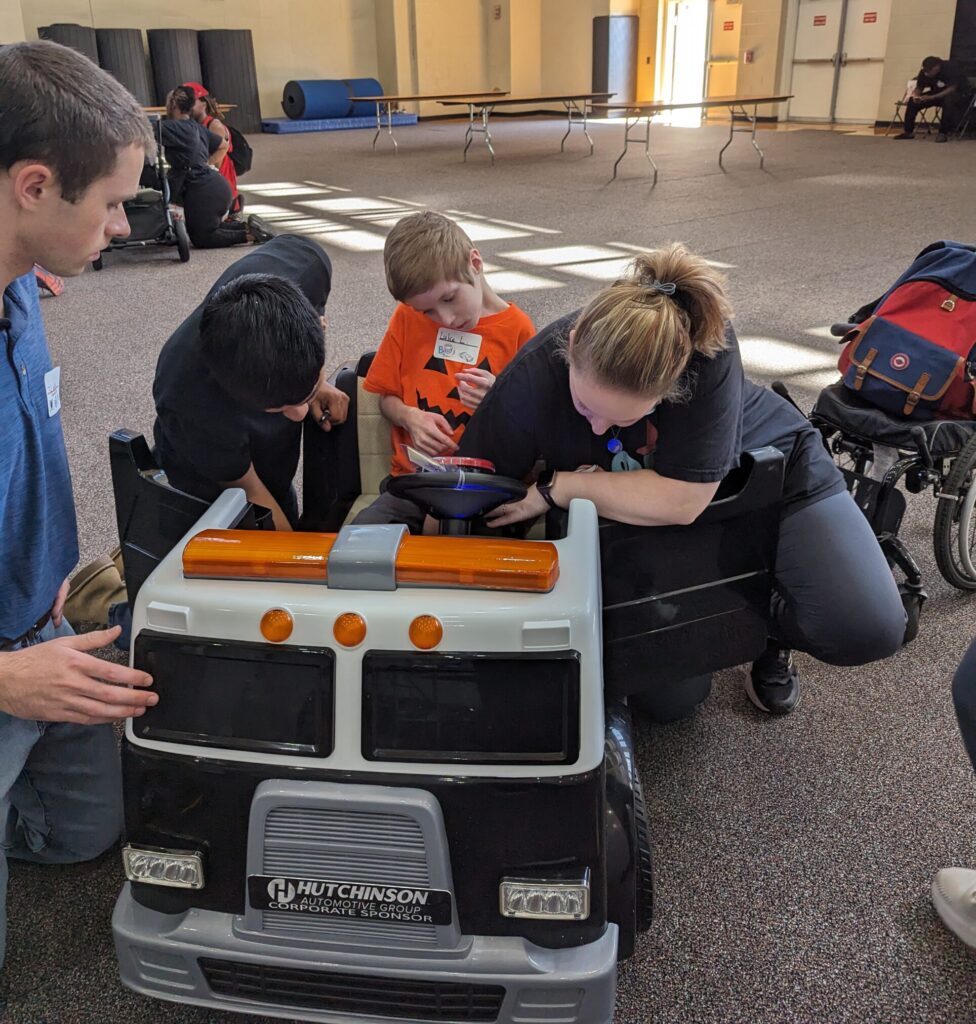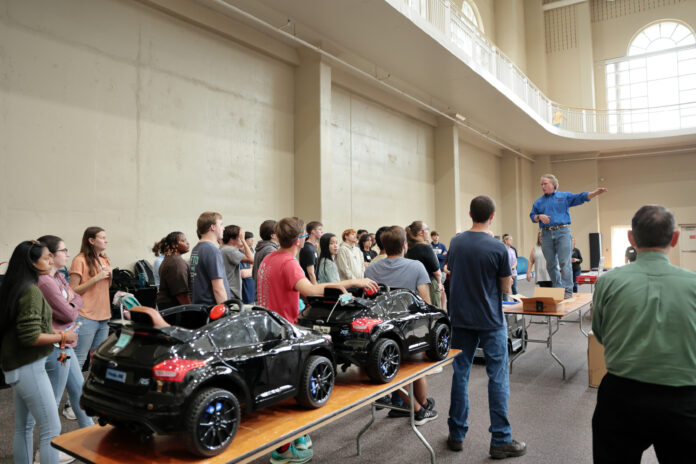
Now that he has a battery-powered toy car modified to meet his specific needs, 8-year-old Kyron Mitchell can’t wait to go outside. Ten-year-old Luke Lineberger is able to go for neighborhood rides alongside his brother, and Harrison Denton, who will soon be 9, gained a new avenue to play with his brother.
Since 2016, Mercer’s Go Baby Go program has been putting smiles on the faces of kids with limited mobility while empowering them and helping them gain more independence. Cars will be modified for 15 children during the 11th event on Feb. 24, and the program will reach the milestone of its 150th car.
Led by Environmental and Civil Engineering Professor and Chair Dr. Philip McCreanor, engineering honors students adapt the cars to provide mobility solutions for the children. They may add safety padding and straps based on recommendations from Atrium Health physical therapists on site or rewire electrical components so the car can be operated in another manner.
While the cars are being worked on, education students — under the supervision of Professor Dr. Sybil Keesbury Martin — interact with the families and lead activities to entertain the children. At least 40 Mercer students are involved in each event, and students from other majors are starting to get involved too, Dr. McCreanor said.
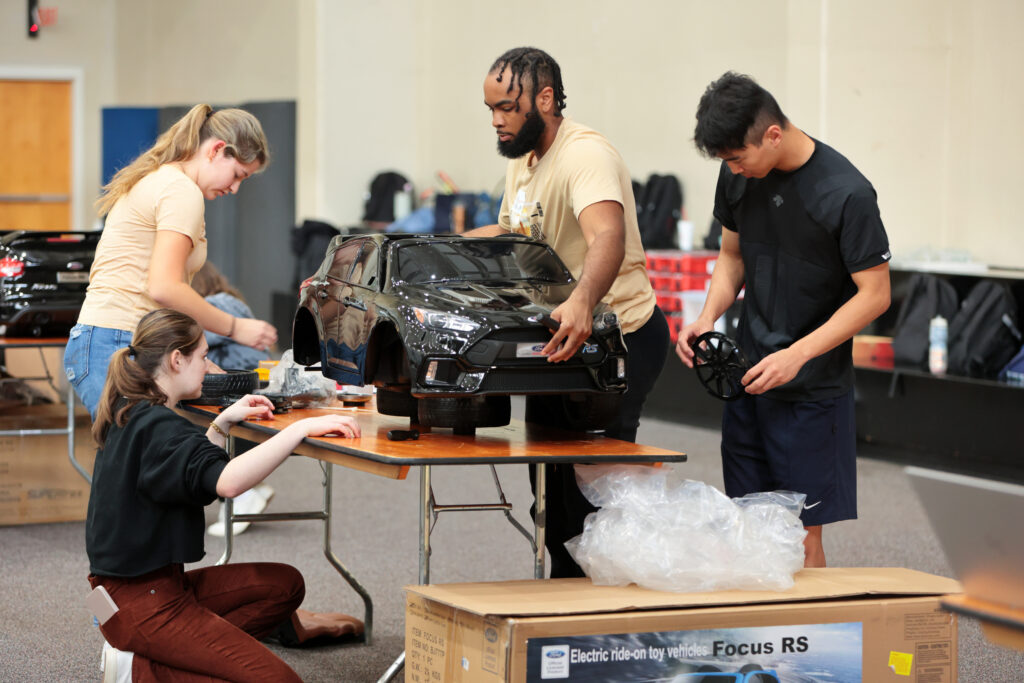
“Our builds positively impact families by promoting independence, inclusivity and community support for children with mobility and social impairments,” said Dr. Keesbury Martin, co-director of the College of Education’s holistic child and elementary special education program. “The mobility provided by Go Baby Go vehicles also has positive developmental effects. We hear from families about the improvement of motor skills, spatial awareness and overall cognitive development in their children. Families also benefit from the sense of empowerment and connection within the community.”
Two Go Baby Go events are hosted yearly, each serving 15-20 families from around Georgia.
Families are referred to Go Baby Go by therapists at Atrium Health and other agencies, and Atrium also provides food and support for the event, Dr. Keesbury Martin said.
“Our Go Baby Go builds offer education students a unique and valuable learning experience that goes beyond traditional classroom instruction. The hands-on, collaborative nature of these programs equips students with practical skills, fosters a commitment to inclusive education and enhances their ability to meet the diverse needs of all learners,” Dr. Keesbury Martin said. “This firsthand experience fosters empathy, sensitivity and a deeper understanding of the challenges faced by individuals with disabilities and their families.”
Kyron, who has spina bifida, has participated in three Go Baby Go events, receiving his first car when he was 16 months old and most recently a firetruck in October 2023. His mother, Tammy Mitchell, said she always wanted her son to have a battery-powered car, and Kyron has gotten the hang of it and enjoys driving it outside their Macon home.
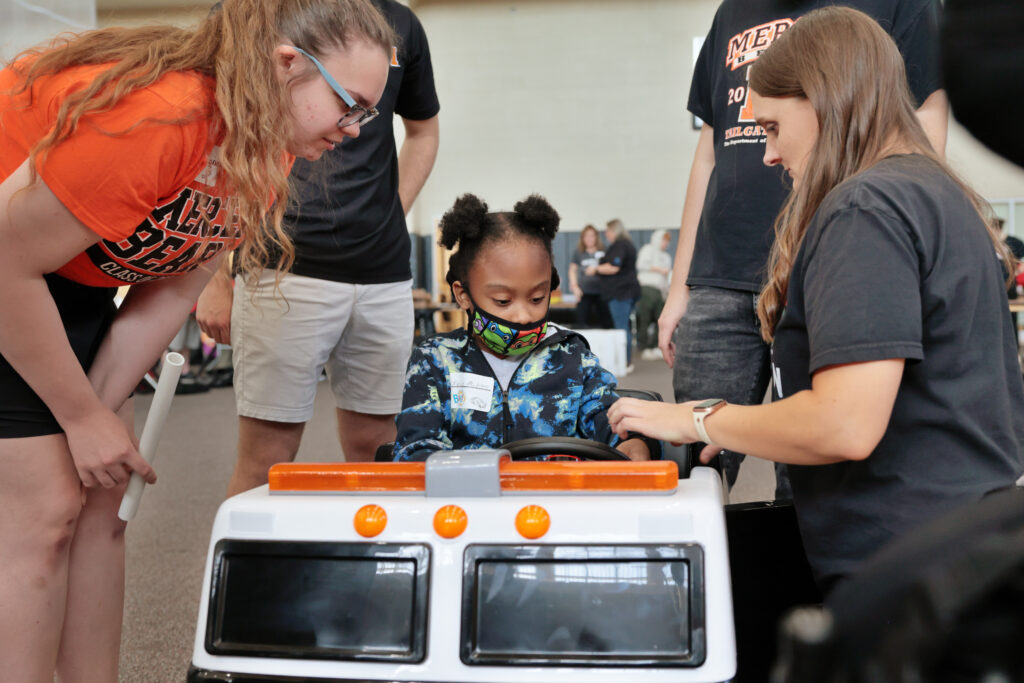
“The Mercer students were right there with Kyron the whole time talking to him,” she said of the fall Go Baby Go event. “They talk to the kids and try to make them feel comfortable about their cars. That’s what I like about it. They want them to be happy.”
On the engineering side, students who have built the cars before are paired with first-time helpers, and they move up the chain of command when they are involved again, Dr. McCreanor said. They apply concepts they have learned in class to the real world and work with real people. For instance, they have to think about what support systems a child needs in the car and then go through the engineering design process to implement a solution.
Generous financial support from Hutchinson Automotive Group since the fall has allowed the Mercer team to purchase larger and more complex vehicles, so they can meet a greater range of needs.
“It’s amazing just to see how many different things are out there that can be modified. It takes these students who have these minds that can think outside of the box,” said Tara Denton, Harrison’s mother, of Gwinnett County.
A “spunky little third-grader,” Harrison was born without arms and minimal bones in his legs and also has scoliosis and torticollis, a twisting of the neck. He has received a red car, red jeep and black jeep over the years through Go Baby Go. The Mercer teams outfitted his vehicles with seating to keep his upper body stable and modified the electronic components, so Harrison could drive with his feet.
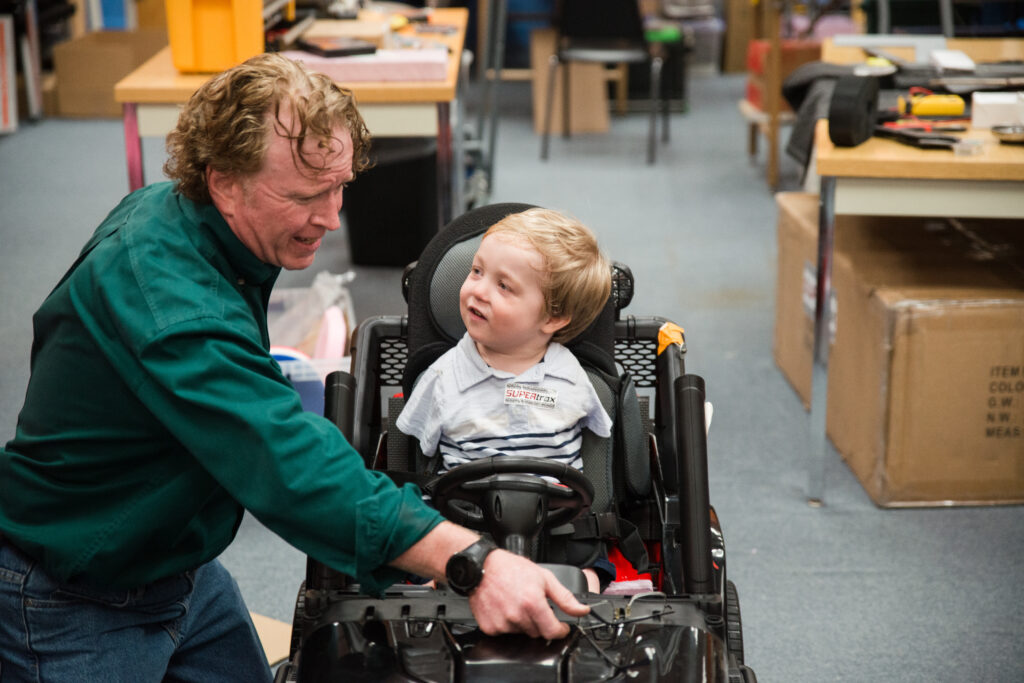
“He absolutely loved it,” Tara Denton said. “It gave him independence. It gave him an avenue to be able to participate with his brother a little more and play. He felt empowered. It was a ride-on toy that he wouldn’t normally be able to maneuver himself, but this program gave him the independence to do that.”
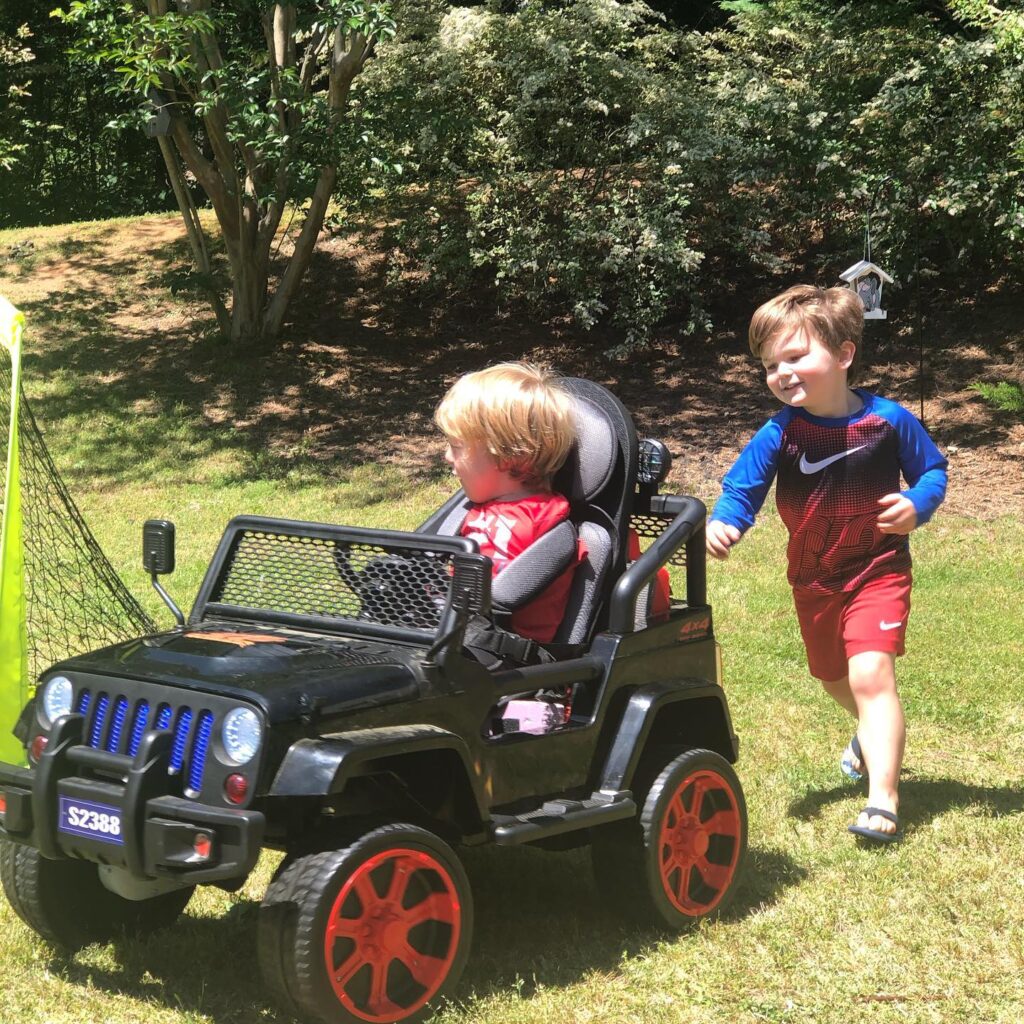
During Go Baby Go, students see how their work can have an instant impact, Dr. McCreanor said.
“With Go Baby Go, you bring in this child who didn’t have mobility or had limited mobility, and you put them in a car, and they have a larger range of freedom to explore, and you see that happen right away,” he said. “Go Baby Go helps children meet developmental markers in a more timely fashion by helping them explore their environment independently and helping them keep up with their peer group. A child can now be involved more completely with the whole family, and there’s better engagement and socialization with the family.”
Luke, who was born with a chromosomal anomaly called tetrasomy 18p, received his first Go Baby Go car about six years ago and another one this past fall. His mother, Mary Lineberger, said their family enjoyed seeing the vehicles modified in front of them and interacting with the Mercer students. Luke and his younger brother now go on rides together around their Macon neighborhood.
“You can tell by his expressions that he feels happy about it,” Mary Lineberger said. “It gives him another form of mobility besides his wheelchair or us helping him walk. He’s learning a little more independence, improving his skills. Go Baby Go has been a good resource for families. It provides opportunities for children who normally don’t have the abilities to use something off the rack. It adapts to their needs. It’s a big help.”
